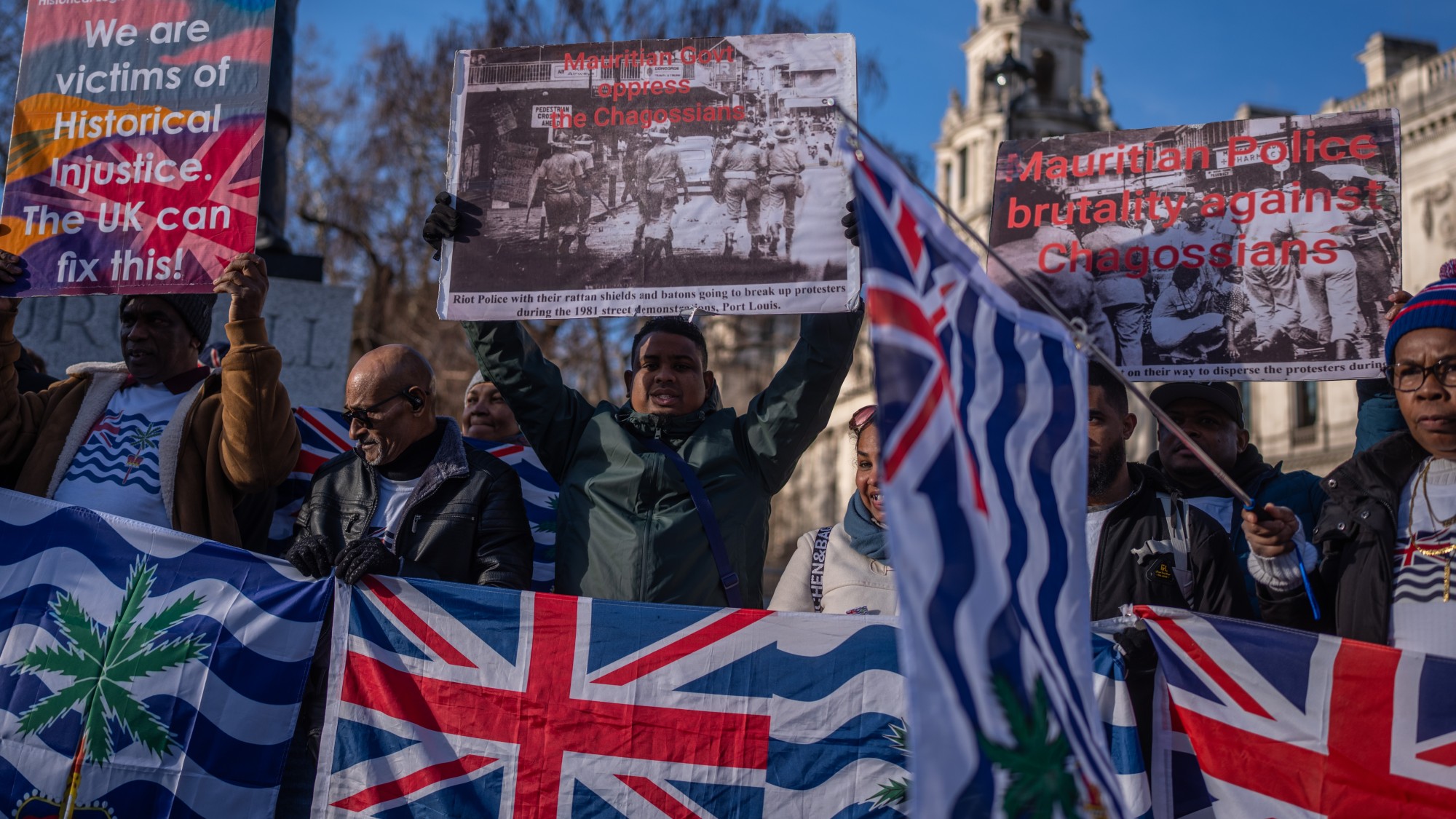The renewed focus on Iran's nuclear program: How it affects the 2012 race
On the eve of the final presidential debate, The New York Times reports that the White House is preparing for one-on-one negotiations with Iran

A free daily email with the biggest news stories of the day – and the best features from TheWeek.com
You are now subscribed
Your newsletter sign-up was successful
The U.S. and Iran have quietly agreed to hold their first one-on-one negotiations over Iran's suspected nuclear weapons program, say Helene Cooper and Mark Landler at The New York Times, a development that could have a major impact on the presidential race as President Obama and Mitt Romney prepare for a third and final debate that will focus on foreign policy. The White House is publicly denying the report, but Romney has long attacked Obama for being soft on Iran, and the latest news is sure to be welcomed by the GOP candidate, say Ben Smith and Zeke Miller at BuzzFeed:
Iran... is one arena in which Republicans believe they have a strong case to make. Neither Obama's early, extended hand, nor his later push toward sanctions, appear to have stopped the country's nuclear program, which Iran asserts — to international skepticism — is peaceful.
Romney's campaign had no comment Saturday, but Republicans said they expect Iran, and Saturday's news, to take center stage in the final debate of the presidential cycle Monday, which will focus on foreign policy.
The Week
Escape your echo chamber. Get the facts behind the news, plus analysis from multiple perspectives.

Sign up for The Week's Free Newsletters
From our morning news briefing to a weekly Good News Newsletter, get the best of The Week delivered directly to your inbox.
From our morning news briefing to a weekly Good News Newsletter, get the best of The Week delivered directly to your inbox.
"This whole thing should be a gift for Mitt," said a Republican operative who works on foreign policy. "It's an embarrassing reminder of how little progress they've made on Iran and it comes on the eve of the foreign policy debate."
Indeed, the very notion of negotiations could make Obama look naive, since Iran has long used diplomatic overtures as a way to stall for time. Conservative columnist Jennifer Rubin makes the case at The Washington Post:
Iran promising to talk to the United States is nothing new. It has been playing rope-a-dope with President Obama and his team for almost four years. It agrees to talks or to have talks about talks, all the while moving closer to a nuclear weapons capability. Former U.S. ambassador to the United Nations (and a Romney adviser and surrogate) John Bolton told me, “Iran has always been prepared to negotiate — when it suits them. That is the history of the last 10 years.”
However, negotiations with Iran could also be seen as a major diplomatic breakthrough, and evidence that crippling sanctions imposed by the U.S. and its allies have worked, says Brian Knowlton at The New York Times:
A free daily email with the biggest news stories of the day – and the best features from TheWeek.com
Supporters of President Obama, in the meantime, said that the tough international sanctions that the president helped marshal against Iran may be bearing fruit exactly as hoped — that Tehran was finally blinking…
David Axelrod, senior adviser to the president, said he had no knowledge about possible United States-Iranian talks.
“But here is what I do know,” he said on Meet the Press. “For two years, the president traveled the world putting together a withering international coalition, and now, the sanctions that they agreed on are bringing the Iranian economy to its knees.”
And the American public isn't eager to plunge into yet another war in the Middle East. Military action can only be a last resort, says The Jerusalem Post in an editorial:
Negotiations should be given “one last chance,” particularly unprecedented direct talks between Iran and the U.S. This should be done not because we have faith such talks really have a chance of succeeding. Rather, it should be done for the sake of the American people, and of the citizens of other Western countries.
As sanctions continue to take their toll and a military strike becomes more likely, Americans and citizens of other Western countries should know that every option for a peaceful resolution to the dispute with Iran has truly been exhausted.
-
 Can Keir Starmer save the Chagos deal?
Can Keir Starmer save the Chagos deal?Today's Big Question Opponents confident they can scupper controversial agreement as PM faces a race against time to get it over the line
-
 China and the rise of the humanoid robots
China and the rise of the humanoid robotsThe Explainer The country’s ‘bustling’ robotics industry is dominating the global market, though experts are split on how concerned we should be
-
 The cabbage comeback
The cabbage comebackThe Week Recommends Gone are the days of ‘WWII boiled cabbage recipes’. The humble vegetable is enjoying a resurgence
-
 The billionaires’ wealth tax: a catastrophe for California?
The billionaires’ wealth tax: a catastrophe for California?Talking Point Peter Thiel and Larry Page preparing to change state residency
-
 Bari Weiss’ ‘60 Minutes’ scandal is about more than one report
Bari Weiss’ ‘60 Minutes’ scandal is about more than one reportIN THE SPOTLIGHT By blocking an approved segment on a controversial prison holding US deportees in El Salvador, the editor-in-chief of CBS News has become the main story
-
 Has Zohran Mamdani shown the Democrats how to win again?
Has Zohran Mamdani shown the Democrats how to win again?Today’s Big Question New York City mayoral election touted as victory for left-wing populists but moderate centrist wins elsewhere present more complex path for Democratic Party
-
 Millions turn out for anti-Trump ‘No Kings’ rallies
Millions turn out for anti-Trump ‘No Kings’ ralliesSpeed Read An estimated 7 million people participated, 2 million more than at the first ‘No Kings’ protest in June
-
 Ghislaine Maxwell: angling for a Trump pardon
Ghislaine Maxwell: angling for a Trump pardonTalking Point Convicted sex trafficker's testimony could shed new light on president's links to Jeffrey Epstein
-
 The last words and final moments of 40 presidents
The last words and final moments of 40 presidentsThe Explainer Some are eloquent quotes worthy of the holders of the highest office in the nation, and others... aren't
-
 The JFK files: the truth at last?
The JFK files: the truth at last?In The Spotlight More than 64,000 previously classified documents relating the 1963 assassination of John F. Kennedy have been released by the Trump administration
-
 'Seriously, not literally': how should the world take Donald Trump?
'Seriously, not literally': how should the world take Donald Trump?Today's big question White House rhetoric and reality look likely to become increasingly blurred